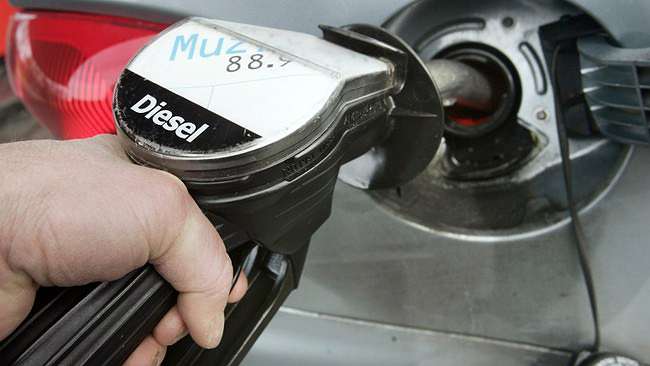Technology for producing winter diesel fuel out of summer diesel fuel

When cooling the hydrocarbon of diesel fuel, the long chains of molecules that make up their composition coalesce and form clumps, which clog the filter later. The more paraffins in the fuel, the faster clots form, and the larger their size.
Initial technology looked like this:
The product via installation introduced a certain amount of cold water. Reacting with water, paraffins fell out in the form of snow and then they could be removed by simple filtration.
The additive introduced at the UKG plants operates as follows:
Long chains of hydrocarbons (in diesel fuel mainly paraffins) included in them, the composition is torn by installing UKG on smaller ones. All fuel consists of micro droplets. The additive introduced into the fuel envelops drops of heavy hydrocarbons and prevents their further adhesion. All heavy hydrocarbons in the fuel structure are composed of microscopic droplets in the shell of the additive. The size of the droplets is such that they freely pass through any filters. Thus, not only the pour point, but also the cloud point of the fuel is reduced.
Unlike other similar technologies, our equipment allows not only to lower the pour point, but also significantly reduce the limiting temperature of filterability. Thus, diesel fuel is obtained in parameters similar to the parameters of winter diesel fuel, but there is no loss in volume due to a decrease in the amount of paraffins.
DIESEL PARAMETERS BEFORE AND AFTER PROCESSING
| Before treatment | After treatment | |
| Pour point | -12°C | -45°C |
| Cloud point | -5°C | -8°C |
| Reserve temperature filterability | -4°C | -25°C |
The difference in the cost of fuels is about $ 0.08 - $ 0.016 / liter (depending on the price difference between different types of fuels), which, even with low diesel consumption from 10 to 30 tons per day, the company can make significant profits.
The time has come when it is necessary to clearly save hydrocarbon raw materials and fuel, to find alternative energy sources, to develop new equipment and technologies to solve the tasks. It is cavitation technologies that allow solving these problems.






